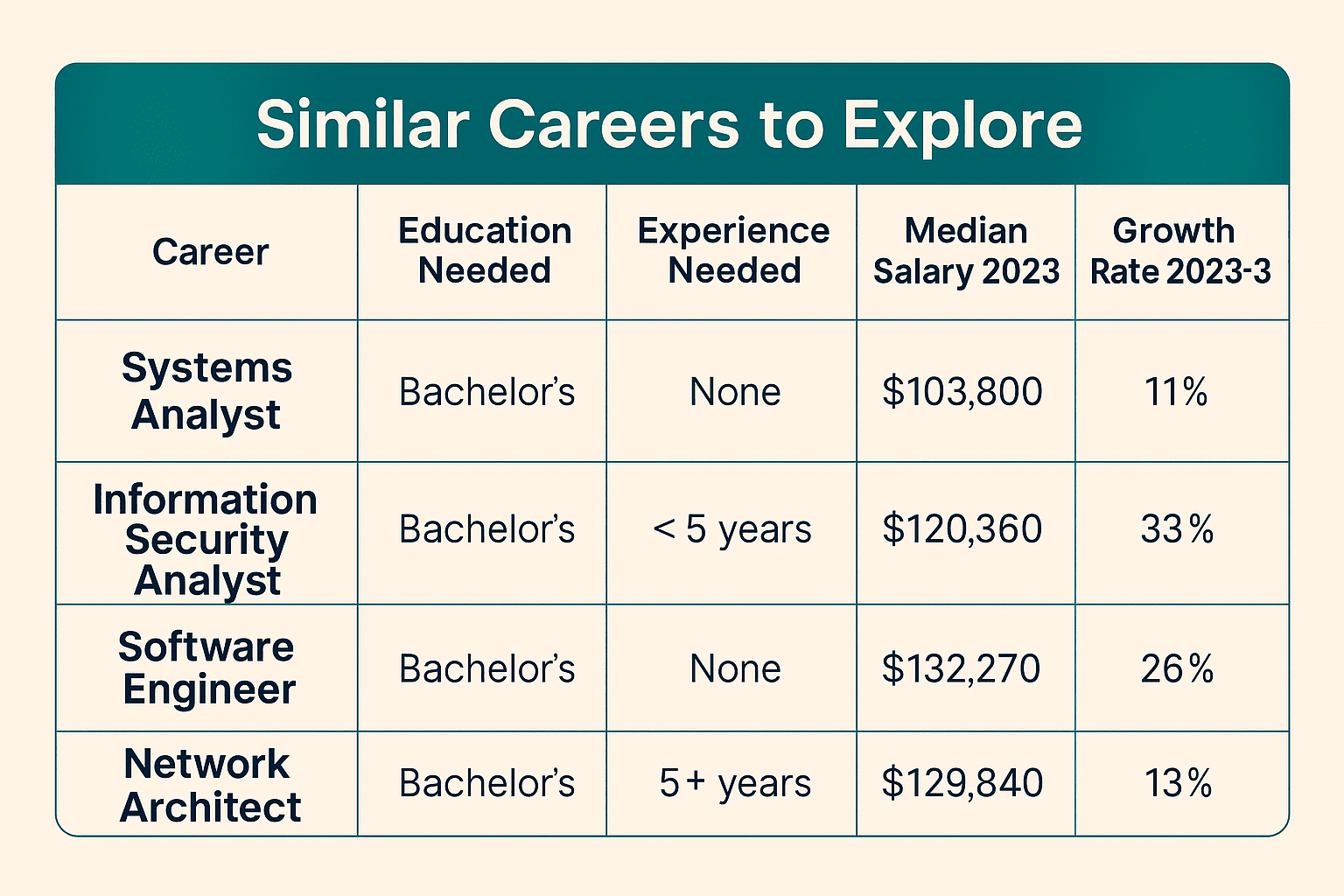What Is a Software Developer? A Software developer designs, builds, and maintains software systems and applications. Whether it’s a consumer-facing app or an enterprise-level database tool, developers translate user needs into working code. They play a pivotal role in tech, contributing to every stage of the software development lifecycle—from ideation to testing to updates.
Developers typically specialize in one of two main categories:
- Application Developers: Focus on mobile and desktop software for end users.
- Systems Software Developer: Build and manage the systems running those applications—such as operating systems or network tools.
They collaborate closely with programmers, quality assurance analysts, and designers, often blurring lines with software engineers who take a broader systems-based approach.
Origins and Evolution of the Profession
Table of Contents
Software development’s origins date back to the early 19th century, with key advances occurring during the mid-20th century alongside the growth of programmable machines. The 1970s and 1980s saw an explosion of demand as computers went mainstream. With the advent of the internet, smartphones, and cloud computing, the developer’s role became critical across industries. Today, software development powers every major sector—from finance to healthcare to entertainment.
What Exactly Does A Developer Do?
Job responsibilities include:
1. Designing, Developing, and Implementing Software Programs
A Software developer begins by analyzing user requirements to design practical and efficient software solutions. They create architecture blueprints, use modeling techniques such as UML diagrams, and lay out a development roadmap that includes timelines, resources, and deliverables. This planning phase ensures that the final product aligns with user needs and system capabilities. Developers then translate these designs into functioning software using various programming languages and frameworks.
2. Writing Clean, Maintainable Code
Beyond functionality, the quality of code matters immensely. Developers are expected to write code that is efficient, scalable, and easy to read—not just for themselves but also for other developers who may work on the project in the future. Clean code reduces technical debt, simplifies debugging, and simplifies ongoing maintenance. Best practices such as proper naming conventions, modularity, and inline documentation are essential.
3. Debugging, Testing, and Resolving Software Issues
Software is rarely perfect on the first try. Developers must rigorously test their code—both manually and through automated test suites—to identify and fix bugs. They use debugging tools to isolate issues, track down logic errors, and ensure system reliability. Testing may include unit tests, integration tests, regression testing, and user acceptance testing (UAT). Once issues are resolved, developers update the software and prepare it for deployment.
4. Collaborating with Other Developers, Engineers, and Stakeholders
Most modern software is built by cross-functional teams. Developers must work closely with front-end and back-end developers, QA analysts, DevOps engineers, project managers, UX/UI designers, and even non-technical stakeholders. This collaboration ensures the project stays aligned with business objectives, meets user expectations, and adheres to deadlines. Strong communication skills and the ability to work in agile or DevOps environments are crucial.
5. Continuously Improving Software Based on Feedback and Usage
Development doesn’t stop at deployment. After release, a Software developer monitors software performance, gathers user feedback, and identifies areas for improvement. They may release updates or patches to fix issues, add new features, or enhance performance. This iterative approach—often facilitated through continuous integration and continuous deployment (CI/CD) pipelines—ensures the software evolves to meet changing user needs and technological trends.
Depending on their specialization, developers may work on operating systems, cybersecurity programs, video games, or web platforms.
Core Skills Every Developer Needs
Soft Skills
- Communication: To align with teams and explain concepts to non-technical colleagues.
- Team Collaboration: Most projects are team-based, requiring seamless coordination.
- Problem-Solving: Debugging and error resolution are daily tasks.
- Attention to Detail: Small code errors can cause massive problems.
Hard Skills
- Data Structures & Algorithms: Foundational for efficient, scalable software.
- Software Security: Understanding vulnerabilities and best practices for secure code.
- Programming Languages: Most developers learn multiple, but key ones include:
- HTML/CSS: Web structure and styling
- JavaScript: Interactive web apps
- Java: General-purpose enterprise software
- C#: Microsoft ecosystems and desktop tools
- Python: Versatile, beginner-friendly, and used in AI, data science, and web dev
A Typical Day in the Life
Developers often begin their day reviewing project goals, refining code, or debugging recent builds. Collaboration with UX teams or attending sprint meetings is common. They spend significant time coding, testing, and adjusting software based on feedback. Some roles demand more interaction; others are solitary and deep in development work.
Education Pathways
While a bachelor’s degree in computer science or a related field remains the standard, it’s not the only route. Alternatives include:
- Bootcamps: Intensive programs teaching job-ready skills in months
- Certifications: Demonstrate expertise without formal degrees
Employers increasingly value hands-on experience over traditional credentials. That said, higher education still correlates with higher salaries:
- Bachelor’s degree holders typically earn $2,500 more monthly than high school grads.
- Master’s graduates command even higher salaries and leadership roles.
Certifications to Boost Your Career
Though not always required, certifications validate your skills. Some popular ones include:
- CompTIA IT Fundamentals: Introductory certification
- IEEE Professional Software Developer: Requires experience and formal education
- Cisco DevNet Associate: Focused on applications within Cisco’s ecosystems
Certifications can be especially useful for self-taught developers or bootcamp grads.
Salary Expectations
According to the Bureau of Labor Statistics (BLS):
- Median Annual Salary: $132,270 (as of May 2023)
- Top Industries: Info services, computer equipment manufacturing, entertainment
- Top Locations: California, Washington, and Maryland
Experience also plays a major role:
- Entry-level: ~$68,000
- Mid-career: ~$78,000
- 20+ years: ~$100,000+
Location Matters
Wages vary dramatically by region:
- Seattle, WA: $101,030 (+29% above national average)
- New York, NY: $98,420
- Chicago, IL: $83,350
High-paying cities also tend to have high costs of living, so developers should weigh compensation against lifestyle needs.
How to Land a Job
Steps to break into the field:
- Earn a relevant degree or attend a bootcamp
- Learn multiple programming languages
- Build a portfolio with real-world projects
- Get certified (optional but helpful)
- Apply for internships or entry-level roles
Many tech employers value demonstrated skill over formal degrees, making hands-on experience and strong portfolios essential.

Resources and Associations
Professional communities offer networking, education, and career support:
- IEEE Computer Society: Offers events, publications, and professional certifications
- CompTIA: Tech training, certification tracks, and industry insights
- Association for Women in Computing (AWC): Mentorship and support for women in tech
- The App Association: Supports small- to mid-size app developers through advocacy and research
Final Thought
The world runs on code, and software developers are its architects. Whether you’re just starting or looking to level up, there’s no better time to pursue this rewarding, high-impact career.

Andrej Fedek is the creator and the one-person owner of two blogs: InterCool Studio and CareersMomentum. As an experienced marketer, he is driven by turning leads into customers with White Hat SEO techniques. Besides being a boss, he is a real team player with a great sense of equality.
